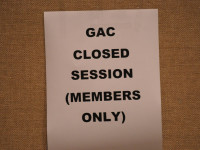Rogers Communications unveiled its plan for streaming more than 1,000 National Hockey League games on the Internet last week. Having invested billions of dollars to obtain the Canadian broadcast and Internet rights to NHL hockey, the cable giant pointed to the future of broadcast by embracing consumer demand for making games available online.
As part of the launch, Rogers Media president Keith Pelley responded to questions about the approach by stating “there’s no such thing as too much choice. Let the consumer decide what they want to watch.” Pelley was speaking about hockey streaming, but my weekly technology law column (Toronto Star version, homepage version) notes his comments should resonate loudly this week in a broader context as the Canadian Radio-television and Telecommunications Commission opens its much-anticipated public hearing on the future of television in Canada.
The CRTC hearing has already generated thousands of advance comments from major stakeholders and individual Canadians. It has also unleashed considerable angst from established broadcasters, broadcast distributors, and content creators, who fear that the broadcast regulator will overhaul the current system by implementing changes such as mandatory pick-and-pay channel selection for consumers and reforms to longstanding policies such as simultaneous substitution (which allows Canadian broadcasters to substitute Canadian commercials into U.S. licensed programming).











